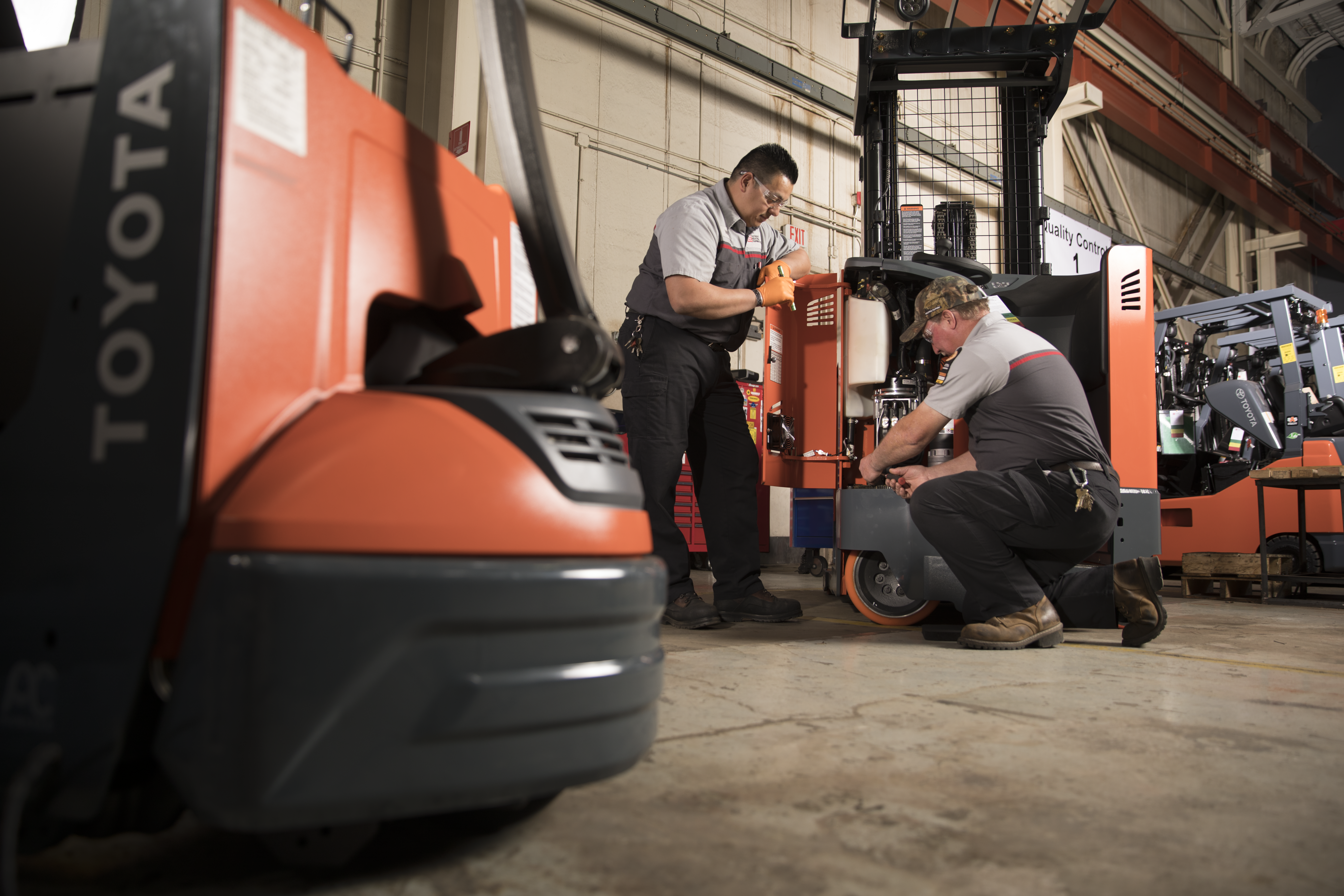In the bustling world of material handling, forklifts stand as indispensable workhorses, shouldering the responsibility of moving heavy loads efficiently. To ensure these machines operate at peak performance and maintain a safe working environment, routine service checkups are not just advisable; they are essential. In this blog, we explore the importance of regular forklift maintenance, shedding light on how these routine checkups contribute to the longevity, safety, and overall efficiency of forklift operations.
1. Safety First:
The safety of both operators and those working in the vicinity is paramount. Regular service checkups help identify and address potential safety issues before they escalate. Issues such as worn-out tires, faulty brakes, or hydraulic leaks can compromise the stability and control of a forklift, leading to accidents or injuries. Routine inspections act as a preventive measure, ensuring that all safety features are in optimal condition and that the forklift meets industry standards.
2. Optimizing Performance:
Forklifts are subjected to rigorous daily operations, and like any machinery, they experience wear and tear over time. Routine service checkups are akin to a health check for these machines, allowing technicians to identify and replace worn-out parts, lubricate components, and adjust settings. This proactive approach not only prevents unexpected breakdowns but also ensures that the forklift operates at its peak efficiency, contributing to increased productivity and reduced downtime.
3. Cost-Efficiency:
While some may see routine service as an additional cost, it is a small price to pay compared to the potential expenses incurred in the event of a breakdown. Unplanned downtime can disrupt operations, leading to loss of productivity and revenue. Regular checkups help catch issues early on, preventing the need for major repairs and extending the lifespan of the forklift. Ultimately, investing in routine maintenance proves to be a cost-effective strategy in the long run.
4. Compliance and Regulations:
Adherence to industry regulations and compliance standards is non-negotiable. Regular service checkups ensure that forklifts meet the required safety and environmental standards. This is particularly crucial in industries where regulatory bodies closely monitor equipment usage. Failure to comply with these standards not only poses legal risks but also jeopardizes the well-being of the workforce.
5. Enhancing Resale Value:
For businesses that plan to upgrade their forklift fleet or trade in older models, routine service checkups can significantly enhance the resale value. A well-maintained forklift with a comprehensive service history instills confidence in potential buyers, showcasing a commitment to equipment care and reliability.
In the dynamic landscape of material handling, routine service checkups for forklifts are not just a maintenance task; they are a strategic investment in safety, efficiency, and long-term cost savings. By prioritizing regular inspections and maintenance, businesses can ensure that their forklifts operate at peak performance, contributing to a safer work environment, increased productivity, and a positive impact on the bottom line. Remember, when it comes to forklifts, an ounce of prevention is worth a pound of cure.
